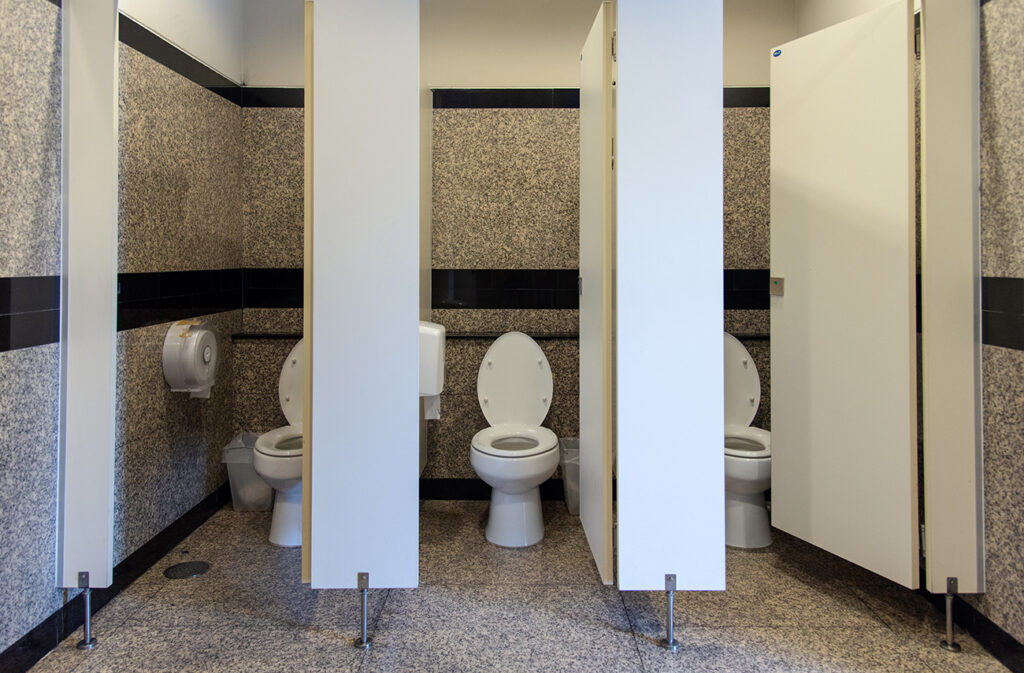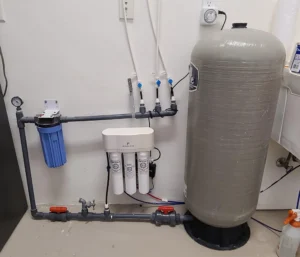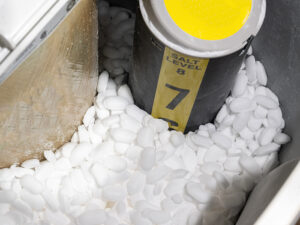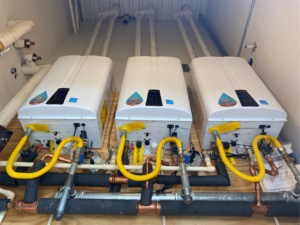Gas stations are a hub of activity, where customers rely on you for quick and convenient service. But beyond the fuel pumps and convenience store, one of the most critical aspects of your operation is often overlooked: the plumbing system. From the bathroom fixtures to the backflow preventers, gas station plumbing plays a vital role in keeping your business operational. Here’s how we can help ensure that your plumbing system remains in top shape.

Comprehensive Backflow Services
Backflow prevention is essential for any commercial establishment, especially gas stations. Contaminated water can have serious consequences, not just for your business, but also for public health. We offer expert backflow services, including the repair, replacement, and certification of backflow preventers. Our certified technicians ensure that your backflow systems are functioning correctly, safeguarding your water supply and keeping you compliant with local regulations
Fixture Repair and Replacement
Gas stations have a variety of plumbing fixtures that see heavy use daily, from commercial faucets and sinks in restrooms to floor drains and water heaters in back rooms. When these fixtures fail, it can lead to customer dissatisfaction and even temporary closures. Our team specializes in the repair and replacement of these essential components. Whether it’s a faulty faucet, a clogged urinal, or a malfunctioning water heater, we have the expertise to get your fixtures back in working order quickly and efficiently.
We also handle the installation and maintenance of water filtration and softening systems, which are crucial for preventing mineral buildup in pipes and fixtures, ensuring a longer lifespan for your plumbing system.
Emergency Leak Repairs and Stoppages

Plumbing emergencies can strike at any time, and when they do, immediate action is crucial to minimize damage and downtime. Leaks and stoppages can disrupt your operations, leading to lost revenue and unhappy customers. Our emergency plumbing services are available to address these urgent issues swiftly. Whether it’s a burst pipe, a clogged drain, or a leaking fixture, our experienced plumbers will diagnose and resolve the problem, allowing you to get back to serving your customers as quickly as possible.
Why Choose Us for Your Gas Station Plumbing Needs?
With our extensive experience in commercial plumbing, we understand the unique challenges that gas stations face. Our services are tailored to meet the specific needs of your business, ensuring that your plumbing system is reliable, efficient, and compliant with all regulations.
- Expert Technicians: Our plumbers are trained and certified to handle all aspects of gas station plumbing, from routine maintenance to complex repairs.
- Rapid Response: We offer quick turnaround times and emergency services to minimize disruption to your operations.
- Comprehensive Solutions: From backflow prevention to fixture repair, we provide a full range of services to keep your gas station running smoothly.
Don’t let plumbing problems disrupt your business. By partnering with Miller & Son’s Plumbing, you can ensure that your gas station’s plumbing system is in expert hands. Whether you need routine maintenance, emergency repairs, or specialized services like backflow certification, we’ve got you covered. Reach out to Miller & Son’s Plumbing today, and let us take care of your plumbing needs so you can focus on running your business smoothly. Call us now to schedule a service or consultation!



